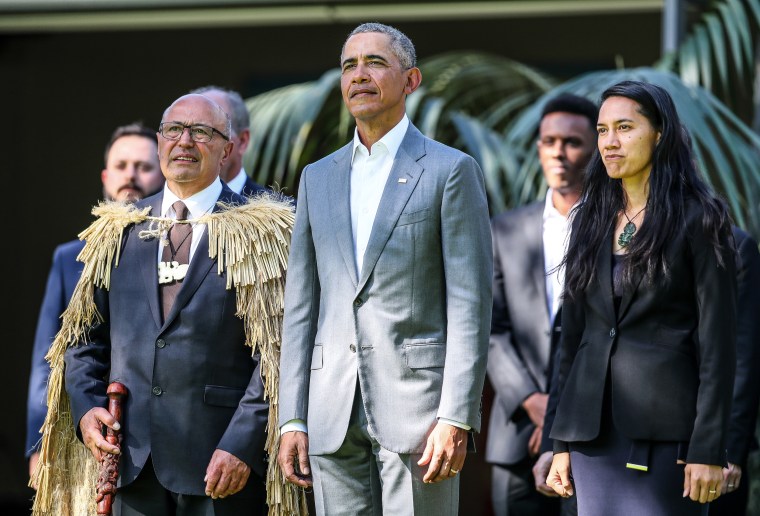With the 2018 midterm elections quickly approaching and the 2020 presidential election not far off, the Democratic Party — despite the resistance to President Donald Trump on the left — is in a leadership and platform crisis, which isn't conducive to priming a "winning" bench of candidates in either election.
So far, most Democrats have seemed content to be playing only to an anti-Trump narrative, especially among their base. It's no innovative insight that Democrats will inherently disagree with almost all the policies of a Republican president, so, on the surface, it would seem like slamming Trump would be a winning strategy. But the problem is that Democrats need to be discussing the policies for which they stand more than simply the president with who they don't.
Many liberals are clearly looking for substance and coherence on the issues, but the party seems to lack a substantive, post-Hillary Clinton platform, and all the discord at the Democratic National Committee continues.
Many liberals are clearly looking for substance and coherence on the issues, but the party seems to lack a substantive, post-Hillary platform and all the discord at the Democratic National Committee continues.
Meanwhile, Democrats are struggling to build a bench for 2020, despite the complete nonsense occurring within the Republican Party. Every remotely bold-faced named has been bandied about as a potential presidential contender — which is how the Republican Party ended up with first John McCain, then Mitt Romney and now Trump as its standard bearers in the last three presidential contests.
It's time to hear from Barack Obama.
While this may sound crazy (given that he could be enjoying his time out of the spotlight), nobody else may truly recognize the flaws within the party that he once mobilized in an unprecedented and historic way.
Even with an expanded, activated progressive base, the Democratic Party cannot attract disgruntled former Republican or Trump voters by running far-left candidates in every district.
And although Trump's victory could be seen as a complete repudiation of Obama's policies and his time in office, it's possible that only the return of the still-popular former president could heal the party's rifts from 2016 and help it return to power.
There was, of course, no love lost between Bernie Sanders and the Democratic National Committee, let alone between many Sanders and Clinton supporters, both within the political establishment and outside it. The difficult and competitive primary was the start of a huge rift between a growing progressive faction who disliked the establishment wing of the party. Maintaining the interest of those voters while also recognizing that the party's best chances to defeat Republicans and win seats in 2018 may be to run more center-left candidates will be a difficult line to tow.
That's because, even with an expanded, activated progressive base, the Democratic Party cannot attract disgruntled former Republican or Trump voters by running far-left candidates in every district. It has seen successes with this strategy in the 2017 Virginia governor's race and the recent Pennsylvania 18th Congressional District race, while some progressive candidates, like Georgia's Jon Ossoff, were defeated soundly by Republicans.
The biggest piece of advice Obama has given to potential contenders is to stick to the issues that matter to people and not to get distracted.
Democrats have a real shot at winning some seats back in swing districts across the country if they run candidates who can appeal to moderate Republicans (as well those who no longer align with the extremism in the GOP) without deepening rifts in their own party and turning progressive voters off.
Enter Obama. Behind the scenes, he has been quietly operating as a "kingmaker," meeting with a wide array of potential candidates, including Sanders, Sen. Elizabeth Warren, D-Mass., former Vice President Joe Biden and former Massachusetts Gov. Deval Patrick.
According to sources, the biggest piece of advice Obama has given to potential contenders is to stick to the issues that matter to people and not to get distracted — which will be tough for any candidate to do with Trump as president.
Nothing energizes Republicans more than their distaste for Obama and his policies.
There is one problem with keeping Obama at the helm of the Democratic Party — even if it is only behind the scenes — and that's the fact that nothing energizes Republicans more than their distaste for Obama and his policies. If Republicans run on the idea that Obama is the puppet master (whether it be through his direct counsel or through his political committee, Organizing For Action), it will be enough to mobilize their own base and turn out the vote.
Democrats, therefore, need to be smart in how they use Obama or their strategy to defeat Republicans could backfire. Democrats have the upper hand going into the midterm elections, because traditionally the political party in power tends to be the most in jeopardy: In every midterm election since the Civil War, the president's party has lost on average of 32 seats in the House and two in the Senate.
Ultimately, Obama's influence in the 2018 and 2020 process and his role in helping to rebuild and restructure the party will be invaluable, and there's no doubt that his grassroots framework will help turn out the vote in many battleground states and districts. But it's important for Democrats to recognize that this blessing may also be a curse, as it could also mobilize the very people they hope to keep from maintaining their political power.
Ashley Pratte is a political commentator and communications strategist who previously served as director of media relations and public affairs at the American Legislative Exchange Council and as director of media relations and a consultant for Better For America. She serves on the board of Republican Women for Progress.
